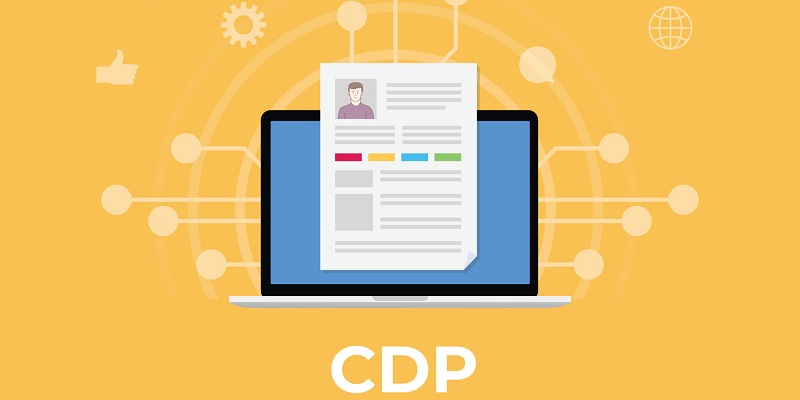In today’s digital age, businesses are striving to create personalized and impactful marketing campaigns that resonate with their target audience. This challenge is where Customer Data Platforms (CDPs) come into play. A CDP is a technology solution that enables businesses to collect, unify, and activate customer data from various sources. By leveraging the power of a CDP, businesses can drive more personalized and effective marketing campaigns and customer experiences.
The role of CDPs as a central repository for customer data
One of the primary functions of a CDP is to serve as a central repository for all customer data. A CDP gathers data from various sources, including website interactions, mobile app usage, social media, customer support interactions, and more. By consolidating all of this data into a single platform, businesses gain a comprehensive and unified view of individual customers across multiple touchpoints and channels.
Segmenting the customer base and analyzing behavioral patterns with CDPs
CDPs enable businesses to effectively segment their customer base. By analyzing customer data, businesses can group customers based on specific characteristics, behaviors, and preferences. This segmentation allows for more targeted marketing campaigns and tailored messaging. With a CDP, businesses can gain valuable insights into customer behaviors and preferences, enabling them to design and execute marketing strategies that resonate with their audience.
Leveraging AI and ML algorithms for processing and insights
CDPs leverage the power of Artificial Intelligence (AI) and Machine Learning (ML) algorithms to efficiently process vast amounts of customer data. These algorithms analyze patterns, identify trends, and uncover valuable insights hidden within the data. By leveraging AI and ML, businesses can spot opportunities, understand consumer behavior, and make data-driven decisions to fuel their marketing efforts.
Automatic customer segmentation and tailored messaging with CDPs
CDPs empower businesses to automatically segment customers based on their characteristics and behaviors. Instead of manually creating segments, CDPs use AI and ML algorithms to identify similarities and differences among customers. This automated segmentation enables businesses to deliver targeted marketing campaigns and personalized messaging to specific groups of customers, enhancing the relevance and effectiveness of their communications.
Using AI and ML for data-driven predictions and recommendations
The integration of AI and ML capabilities within CDPs allows businesses to make data-driven predictions and recommendations. These technologies analyze customer data and patterns to forecast future behavior and preferences. Armed with these insights, businesses can proactively engage customers with personalized offers, loyalty incentives, or retention strategies. By anticipating customer needs, businesses can foster stronger relationships, drive customer loyalty, and boost revenue.
Real-time product recommendations and personalized content with CDPs
CDPs enable businesses to generate real-time product recommendations. By analyzing individual customer preferences and purchase history, CDPs can suggest upsells, cross-sells, and personalized content. Whether it’s an e-commerce platform recommending relevant products or a media streaming service suggesting movies or shows, CDPs enhance the customer experience by providing tailored recommendations that align with their interests and past behavior.
CDPs in the e-commerce industry for personalized product recommendations
The e-commerce industry has greatly benefited from CDPs. Online retailers can leverage customer browsing behavior, purchase history, and demographic data to provide personalized product recommendations. By creating a personalized shopping experience, businesses can increase customer satisfaction, enhance engagement, and ultimately drive sales.
CDPs for media companies to recommend relevant content
Media companies, such as streaming platforms and news outlets, can utilize CDPs to recommend relevant movies, shows, or articles to users. By analyzing user behavior, preferences, and viewing history, CDPs generate personalized content recommendations. This personalized content discovery leads to increased user engagement, longer session times, and improved customer retention.
Enhancing the relevance and effectiveness of marketing campaigns with CDPs
With the comprehensive insights gained from a CDP, businesses can deliver highly targeted and personalized messages to their audience. By understanding customer preferences, interests, and behaviors, marketing campaigns become more relevant and engaging. By tailoring messaging to individual customers, businesses can foster deeper connections, drive conversions, and maximize the ROI of their marketing efforts.
In today’s data-driven world, a customer data platform (CDP) is a crucial tool for businesses aiming to deliver personalized and effective marketing campaigns. By leveraging a CDP’s ability to collect, unify, and activate customer data, businesses can gain valuable insights, generate personalized recommendations, and deliver tailored messaging. CDPs, powered by AI and ML algorithms, empower businesses to exceed customer expectations, drive engagement, and increase revenue. Embracing a CDP is no longer a luxury but a necessity for businesses seeking to thrive in the competitive landscape of personalized marketing.

